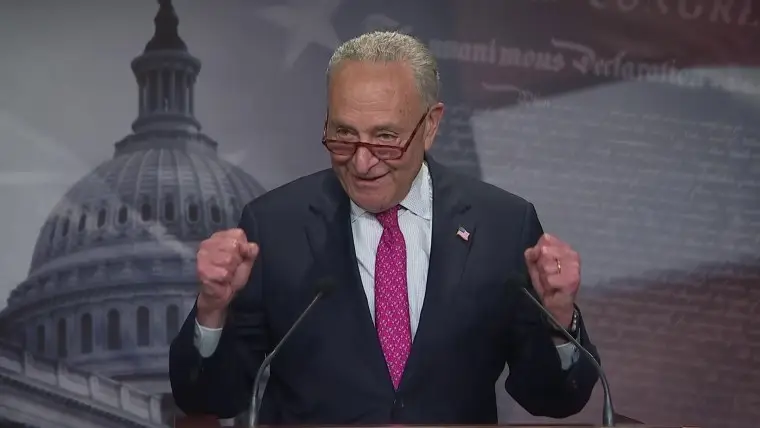
Senate passes debt ceiling bill, sending it to Biden to become law and avert disaster
WASHINGTON — The Senate voted Thursday night to pass a bill that would extend the debt ceiling for two years and establish a two-year budget agreement on a broad bipartisan vote.
The vote was 63-36.
Having already cleared the House on Wednesday, it now goes to President Joe Biden, who is expected to sign it and avert an economically catastrophic debt default with mere days to spare before Monday's deadline.
The agreement was brokered by Biden, a Democrat, and House Speaker Kevin McCarthy, a Republican, after a lengthy stalemate and a frenzied few weeks of negotiations as the U.S. neared the cliff. Biden will address the nation on the bill at 7 p.m. ET Friday.
Schumer touts passage of debt ceiling bill: 'We are not defaulting'
June 2, 202303:39"America can breathe a sigh of relief. Because in this process we are avoiding default," said Senate Majority Leader Chuck Schumer, D-N.Y. "The consequences of default would be catastrophic."
Senate Minority Leader Mitch McConnell, R-Ky., championed the bill as "an urgent and important step in the right direction — for the health of our economy and the future of our country."
The final Senate vote came after 11 amendments were considered — a demand by various senators in exchange for agreeing to vote on the bill quickly; all of the amendments were shot down. That agreement allowed the Senate to skip a series of hurdles that could have, without unanimous consent, pushed the U.S. past the debt ceiling deadline Monday. Senators also wanted to leave town for a long weekend, hastening the procedural talks.
Extending the debt ceiling does not authorize new spending; it enables the U.S. to pay existing debts that both parties have accumulated over many years through demands for higher spending on domestic and military programs, as well as lower taxes.
Once it is signed into law, the bill will cap spending for the next two years with a modest cut to nonmilitary spending and a modest expansion in defense spending. It includes conservative measures to claw back about $28 billion in unspent Covid relief funds, eliminate $1.4 billion in IRS funding and overhaul the permitting process for energy projects.
The bill will restart federal student loan payments after a lengthy "pause" that began early in the pandemic. And it would impose work requirements for people up to 55 years old to get benefits under the Supplemental Nutrition Assistance Program, or SNAP, and Temporary Assistance for Needy Families, or TANF; currently, work requirements are in place for recipients up to 50 years old. The SNAP and TANF changes include carve-outs for veterans, homeless people and adults up to 24 aging out of foster care.
The Biden-McCarthy agreement would not make any changes to Social Security, Medicare or Medicaid.
Schumer celebrated the bill as a Democratic win Thursday night, noting that more Democrats backed the bill than Republicans in both chambers.
"I thank my colleagues for the good work tonight," Schumer said. "I commend President Biden and his team for producing a sensible compromise under the most difficult of circumstances. So many of the destructive provisions in the Republican bill are gone."








